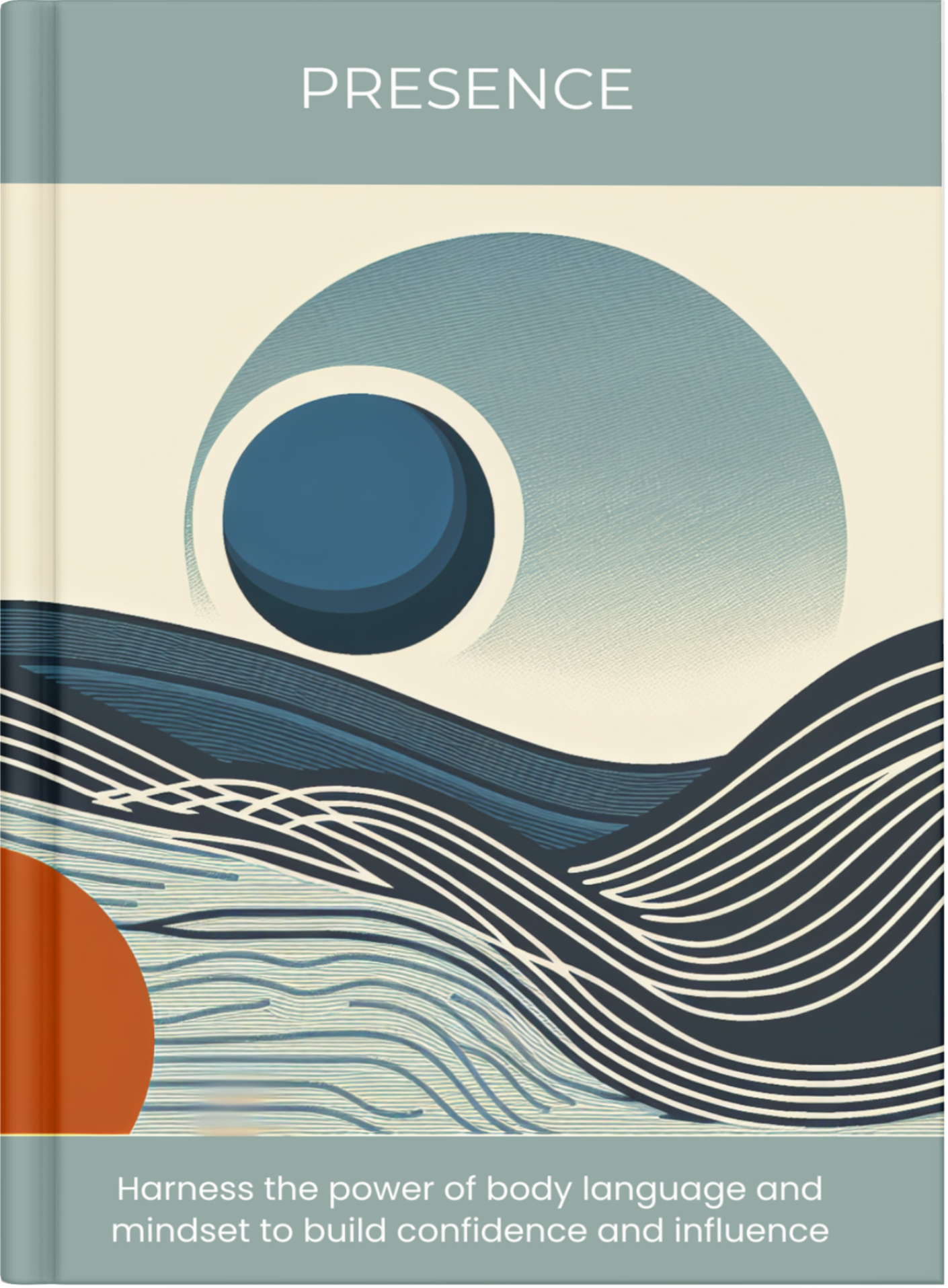
Presence
Amy Cuddy
In 'Presence,' Amy Cuddy explores the concept of personal power and how individuals can harness it to achieve their goals. The book delves into the science of body language, self-perception, and the impact of 'power poses' on confidence and performance. Cuddy provides practical advice and strategies for overcoming self-doubt, managing stress, and presenting oneself more effectively in various situations.
0:000:00
Keypoint 1: The Power of Presence
Presence is the state of being attuned to and able to comfortably express your true thoughts, feelings, values, and potential. It is about being fully engaged in the moment, without the distraction of self-doubt or external pressures. When you are present, you are able to connect more deeply with others, communicate more effectively, and perform at your best.
The concept of presence is rooted in the idea that our body language and mental state are interconnected. When we adopt open, expansive postures, we not only project confidence to others but also feel more confident ourselves. This is because our body language can influence our hormone levels, specifically increasing testosterone (associated with dominance) and decreasing cortisol (associated with stress).
Amy Cuddy emphasizes that presence is not about faking it until you make it, but rather about being true to yourself and allowing your authentic self to shine through. This authenticity is what makes presence so powerful. When you are genuine, people are more likely to trust you, and you are more likely to trust yourself.
To cultivate presence, it is important to practice mindfulness and self-awareness. This involves paying attention to your thoughts and feelings without judgment and being aware of how your body language affects your mental state. Techniques such as power posing, deep breathing, and visualization can help you achieve a state of presence.
In addition to individual benefits, presence can also have a positive impact on group dynamics. When leaders are present, they create an environment of trust and openness, which can lead to more effective teamwork and collaboration. Presence can also help in high-stakes situations, such as job interviews or public speaking, by reducing anxiety and improving performance.
Ultimately, the power of presence lies in its ability to help you connect with your true self and with others. By being present, you can navigate challenges with greater ease, build stronger relationships, and achieve your goals more effectively.
The concept of presence is rooted in the idea that our body language and mental state are interconnected. When we adopt open, expansive postures, we not only project confidence to others but also feel more confident ourselves. This is because our body language can influence our hormone levels, specifically increasing testosterone (associated with dominance) and decreasing cortisol (associated with stress).
Amy Cuddy emphasizes that presence is not about faking it until you make it, but rather about being true to yourself and allowing your authentic self to shine through. This authenticity is what makes presence so powerful. When you are genuine, people are more likely to trust you, and you are more likely to trust yourself.
To cultivate presence, it is important to practice mindfulness and self-awareness. This involves paying attention to your thoughts and feelings without judgment and being aware of how your body language affects your mental state. Techniques such as power posing, deep breathing, and visualization can help you achieve a state of presence.
In addition to individual benefits, presence can also have a positive impact on group dynamics. When leaders are present, they create an environment of trust and openness, which can lead to more effective teamwork and collaboration. Presence can also help in high-stakes situations, such as job interviews or public speaking, by reducing anxiety and improving performance.
Ultimately, the power of presence lies in its ability to help you connect with your true self and with others. By being present, you can navigate challenges with greater ease, build stronger relationships, and achieve your goals more effectively.

